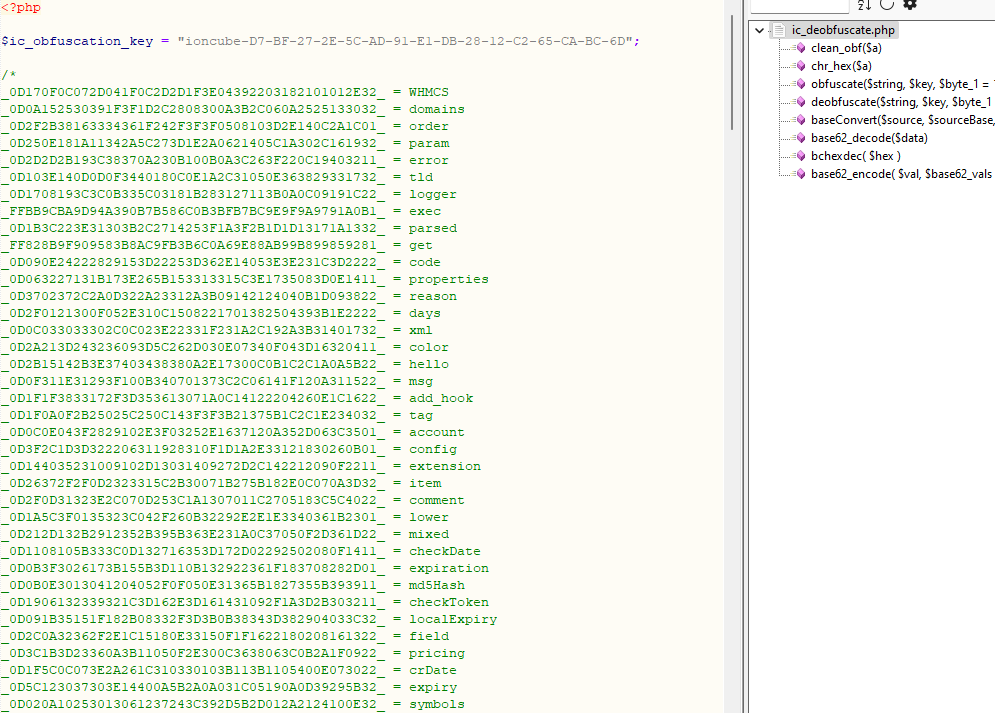The ionCube encoder offers robust obfuscation features that can target classes, methods, functions, and local variables within PHP source code. During the encoding process, developers can set an obfuscation key (commonly called obfkey) and choose which identifiers they wish to obfuscate.
How the Obfuscation Works
When the encoder runs, it transforms the selected names into obfuscated byte sequences through an encryption process:
-
The
obfkeyis first hashed using the MD4 algorithm. -
This hashed key modifies the base64-encoded version of the original names, producing complex, non-human-readable byte strings.
For example, a simple function name like exec might be obfuscated into a long hexadecimal sequence such as: “0D3B3E0A0129021E0C321B10380F3718340D31173E0722”
Recovering Obfuscated Names
Fortunately, the obfuscation key (obfkey) is stored within the encoded file itself, making recovery possible. The recovery process typically involves:
-
Extracting the
obfkeyfrom the encoded file. -
Using a large dictionary of possible names and encoding them using the extracted key.
-
Comparing the resulting obfuscated values with the stored byte sequences.
When a match is found, the original name corresponding to the obfuscated bytes can be identified.
Impact on Decoded Files
In some cases, it may not be possible to recover all obfuscated names. Whether the decoded file remains functional depends on which names remain obfuscated:
-
If the obfuscated name belongs to a function or class that is consistently used with the same obfuscated name, the code can still run correctly. PHP can resolve the references internally.
-
Problems arise when an obfuscated name is orphaned — meaning it cannot be matched to a defined function, class, or variable. In these cases, PHP cannot recognize or execute the code correctly.
To avoid such issues, it is crucial to deobfuscate all encoded files within the script to ensure compatibility and functionality.
